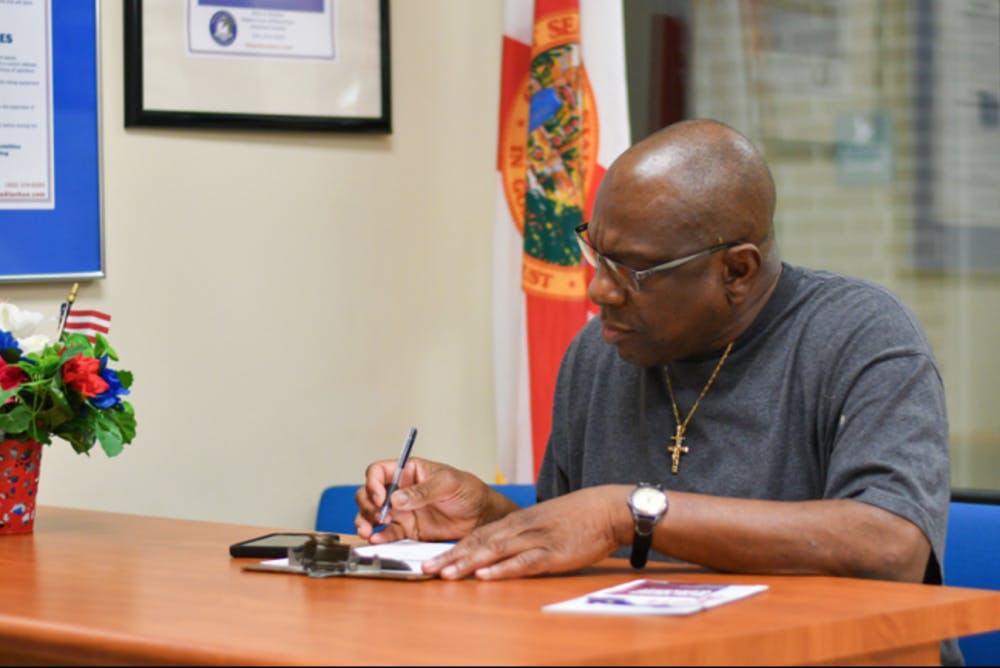Daniel Reese never got to vote.
About seven years ago, he lost his right to.
Reese, a 31-year-old High Springs resident, was convicted in his early twenties for aggravated stalking, which he said he attributes to mental health issues.
“I was worried about partying and having fun and doing all the other normal kid stuff. So I never got to vote,” Reese said at the Alachua County Supervisor of Elections Office. “People can grow and change.”
Tuesday marked the day about 1.4 million felons in Florida could start registering to vote again after Amendment 4 passed in November.
Reese gained that right back and joined about 50 other new voters who registered at the elections office, said TJ Pyche, the elections office spokesperson. Those 50 may not all be felons.
The amendment restores the rights of felons who completed their sentencing, excluding those convicted of murder or felony sexual offenses, Pyche said.
Florida voters approved the amendment with 64.5 percent last November, according to the Florida Division of Elections.
Tequila McKnight, a 42-year-old formerly incarcerated Gainesville resident, has not voted since 2007. She said she registered to get her voice back, especially on topics about her children’s schooling.
“I want to vote so bad. I didn’t realize back when I was younger how important voting was,” she said. “I’m an everyday person. I need to vote. I’m not a bad person, I just made a bad decision.”
Contact Karina Elwood at kelwood@alligator.org and follow her on Twitter @karina_elwood.
Harry Jones, a 61-year-old formerly incarcerated Alachua County resident, registers to vote Tuesday, Jan. 8, 2019, at the Alachua County Supervisor of Elections office. Jones, who has been out of prison for 13 years, had his right to vote restored after Amendment 4 passed in the 2018 midterm election. Tuesday was the first day Amendment 4 was put into effect. About 50 people registered to vote in Alachua County, said TJ Pyche, the elections office spokesperson.






